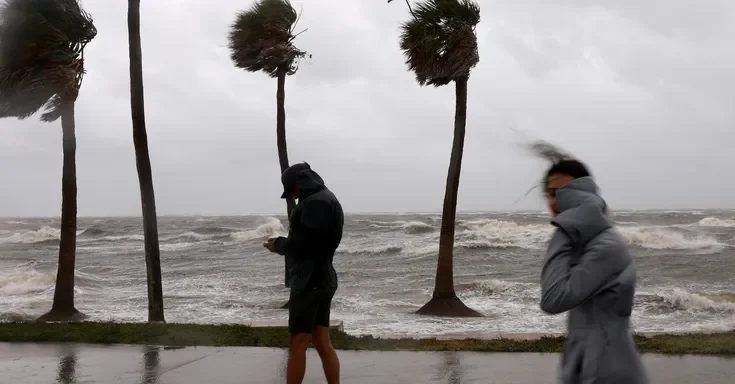Hurricane Milton is anticipated to intensify and remain an extremely dangerous storm when it approaches the west coast of Florida on October 9, 2024.
As the impact of Hurricane Milton looms, authorities have designated evacuation zones and issued crucial life-saving guidance for those in the storm’s path.

Residents of Orange County, Florida, collect sandbags for free to protect themselves from Hurricane Milton, on October 8, 2024. | Source: Getty Images
Staying informed is key to protecting against destructive winds and dangerous storm surges, which can produce life-threatening waves.
Inland areas are also at risk from hurricane-force winds, while heavy rainfall across parts of Florida could lead to deadly flash floods, urban flooding, and river flooding.
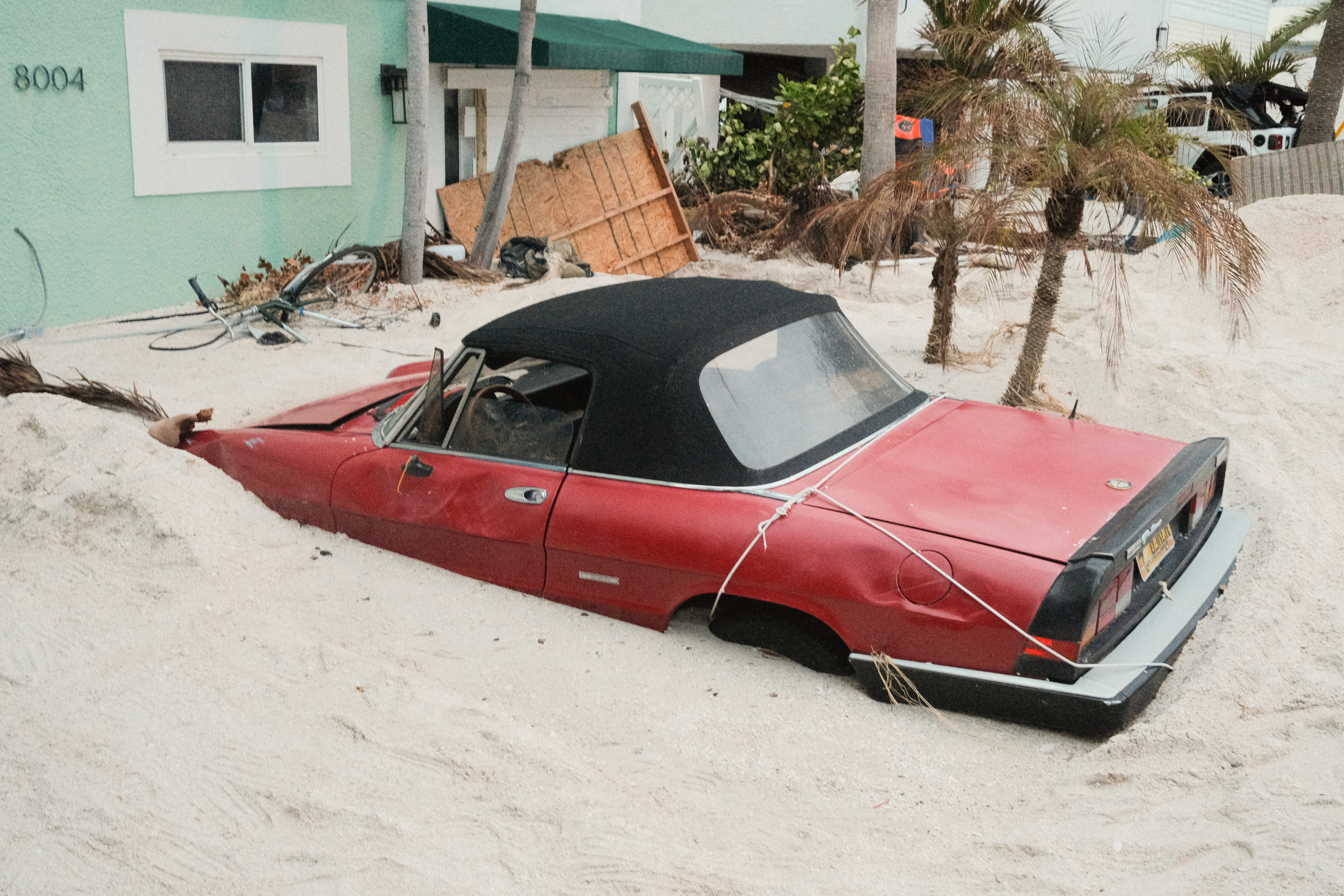
A damaged vehicle stuck in sand swept up by Hurricane Helene ahead of Hurricane Milton’s expected landfall in Treasure Island, Florida, on October 7, 2024 | Source: Getty Images
As such, residents are advised to review the evacuation zones and follow the safety steps outlined below to safeguard their lives and property.
With the risks in mind, taking proactive steps now can help you stay safe during the storm. Here’s how to prepare and protect yourself
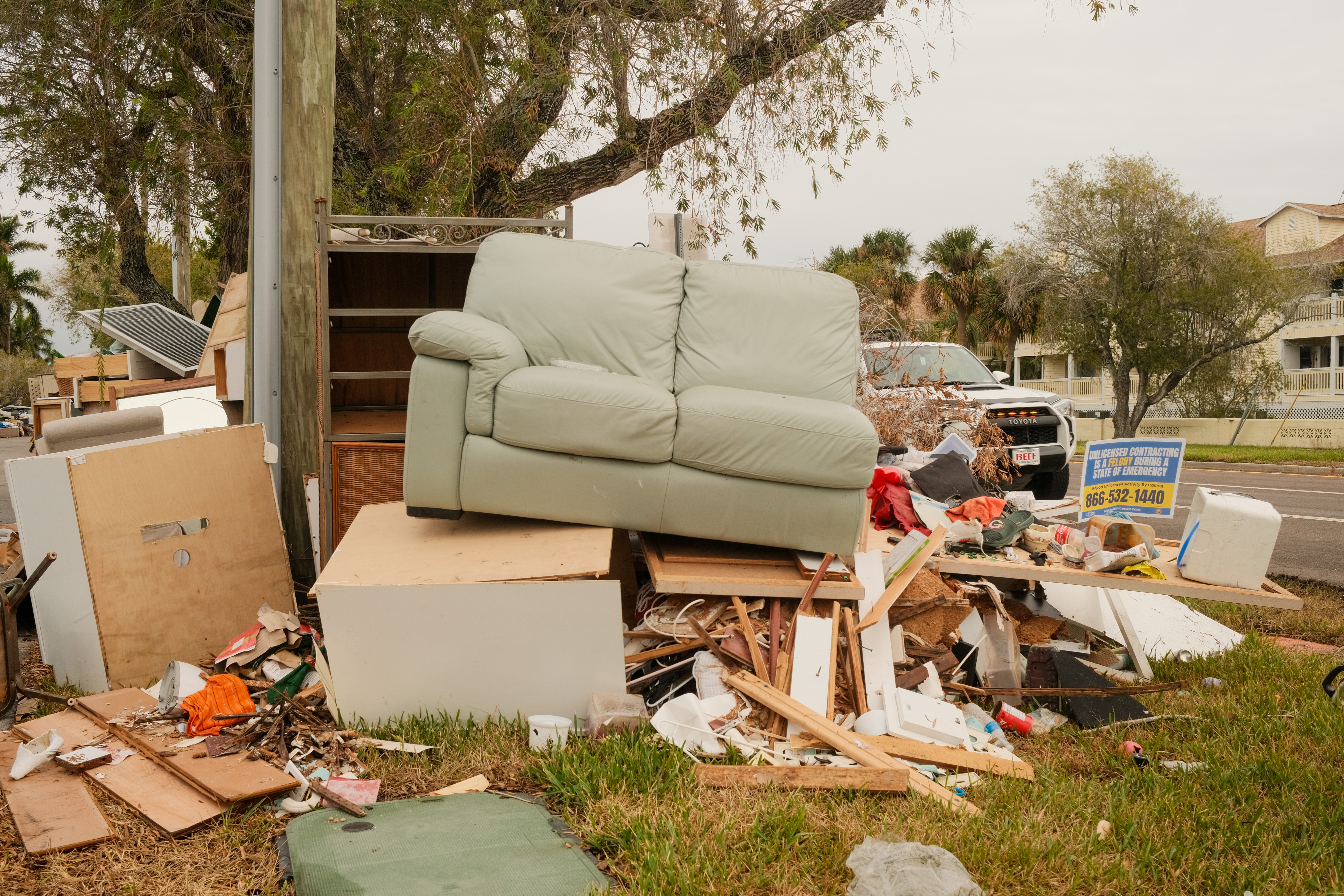
Piles of debris from Hurricane Helene remain uncollected ahead of Hurricane Milton’s expected landfall in Treasure Island, Florida, on October 7, 2024 | Source: Getty Images
Prepare
Understand your hurricane risk. This includes the potential for heavy rain, strong winds, flooding, and tornadoes that can occur far inland from where a storm makes landfall.
Be familiar with the hurricane plans in place, including considerations for those at work, children’s daycare, and other frequently visited locations like grocery stores.
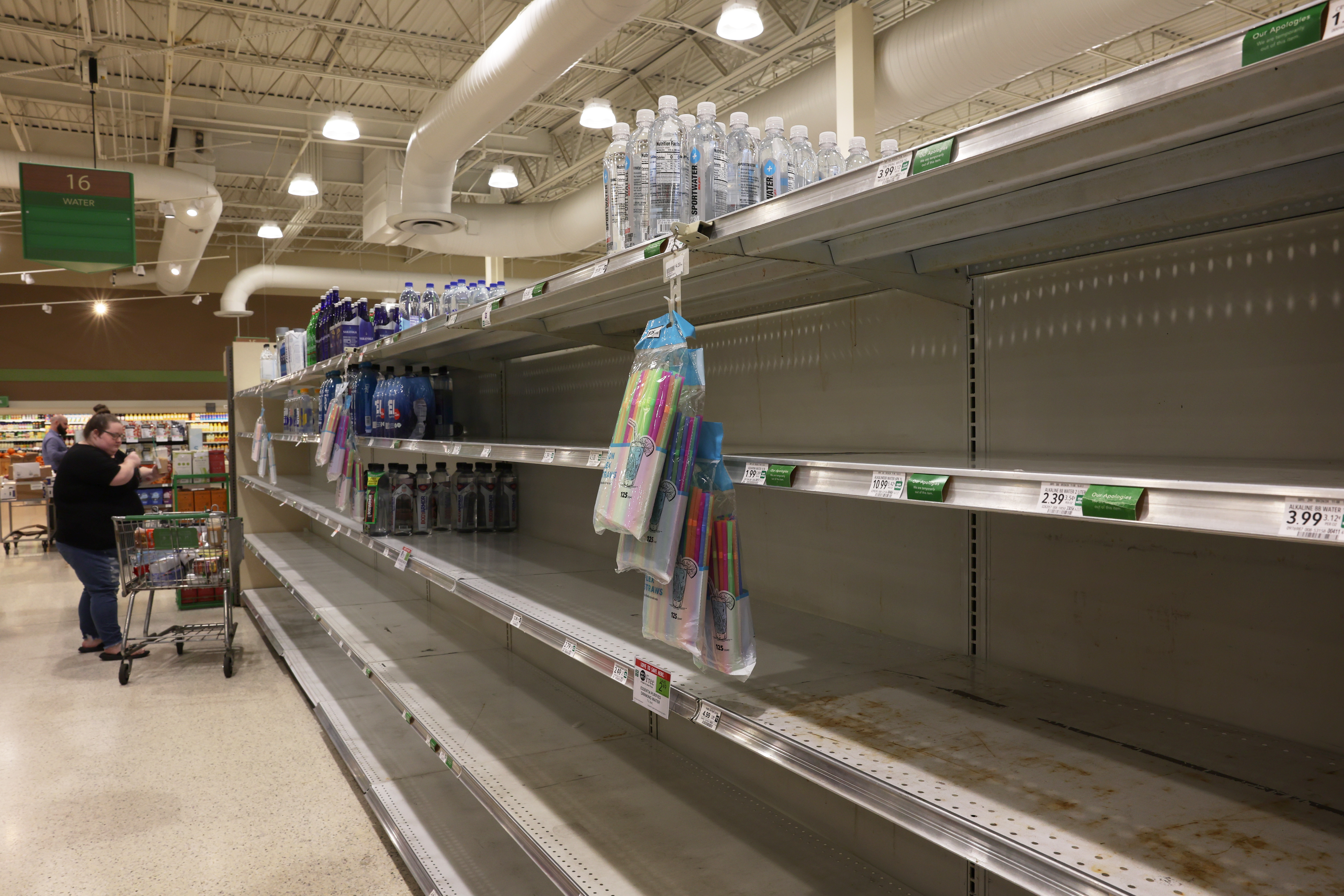
Shelves at a grocery store are empty of bottled water as Hurricane Milton churns in the Gulf of Mexico in St. Petersburg, Florida, on October 7, 2024 | Source: Getty Images
Stock up on essential supplies. Recommended items include medications, disinfectants, and pet supplies, which should be kept in a go-bag or car trunk. Access to these supplies may be limited for days or even weeks following a hurricane.
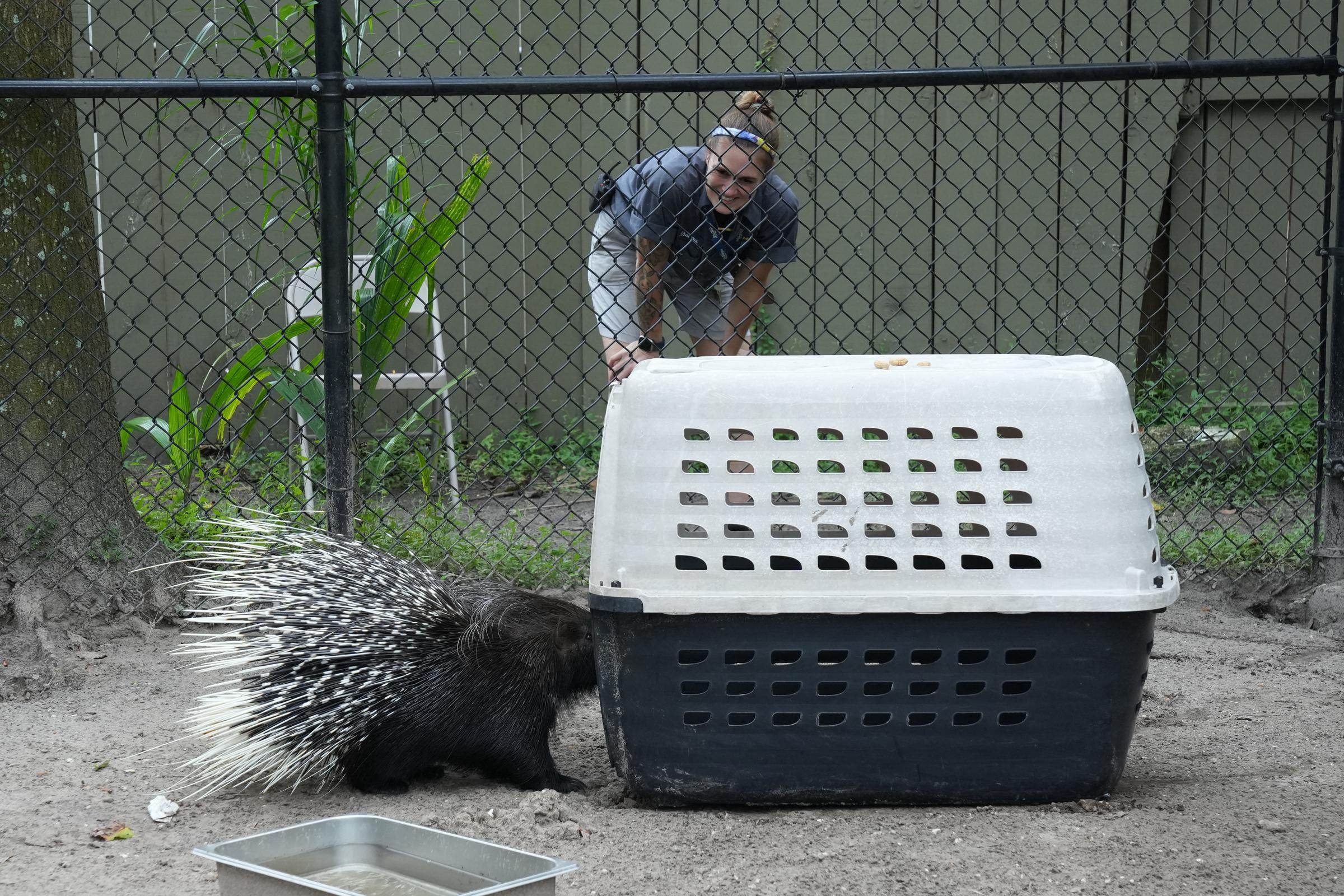
Employees move an African porcupine named Chompers to a pet carrier at Zoo Tampa ahead of Hurricane Milton, in Florida, on October 7, 2024 | Source: Getty Images
Make sure to clear drains and gutters, secure outdoor furniture, and consider installing hurricane shutters. It’s also important to charge cell phones and invest in backup power sources for electronics when a hurricane is forecasted.
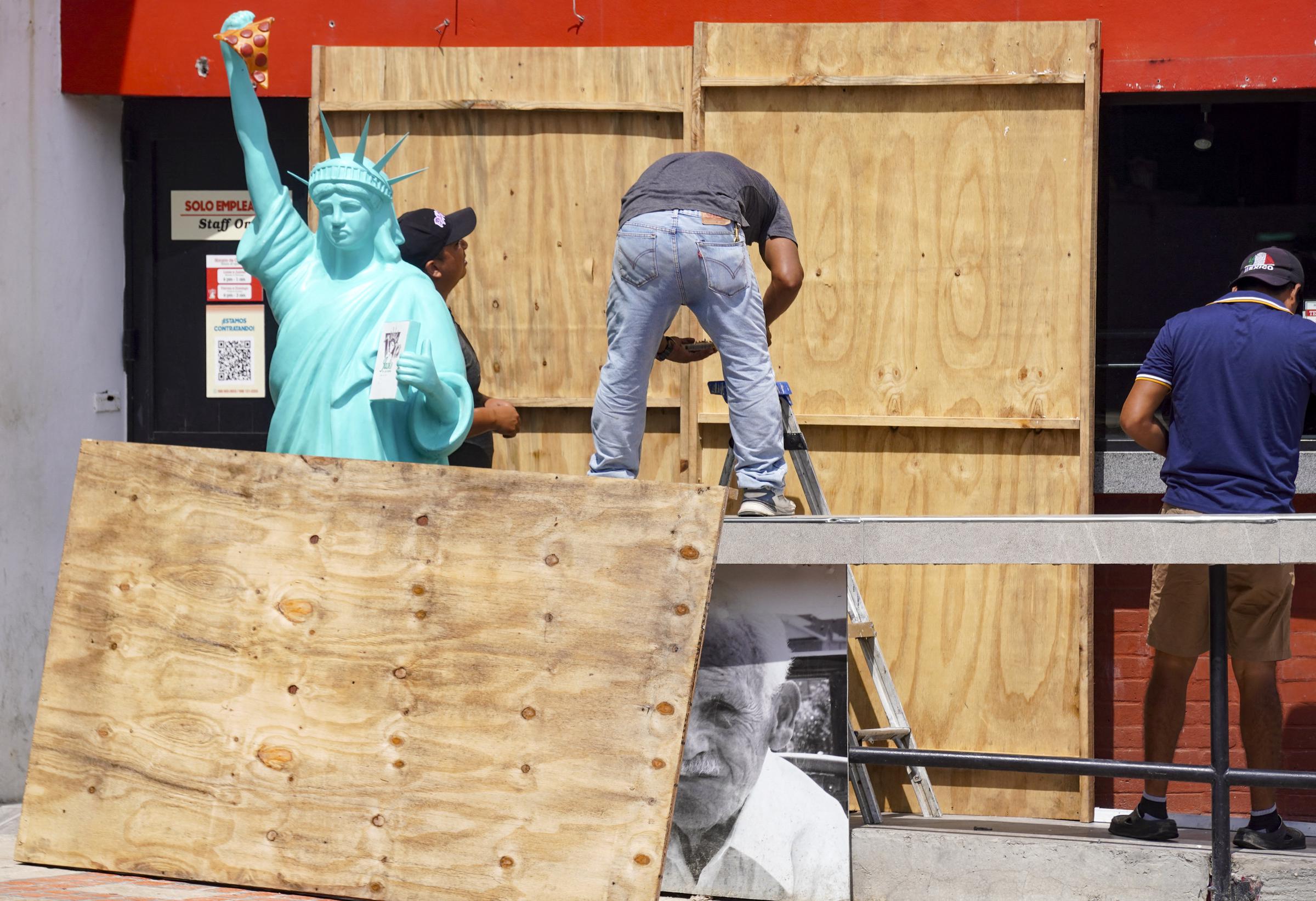
Workers place sheets of wood over windows and glass doors to protect them from the strong winds expected with the arrival of Hurricane Milton in Mexico, on October 7, 2024 | Source: Getty Images
Stay Informed
It’s crucial to know if you live in an evacuation zone, listed at the end of this article, as you may need to evacuate quickly during a hurricane. Familiarize yourself with evacuation routes, practice evacuating with your household and pets, and decide where you will stay.
Follow the guidance of local emergency managers, who work with state, local, tribal, and territorial agencies. They will provide up-to-date recommendations based on the specific threats to your community and the necessary safety measures.
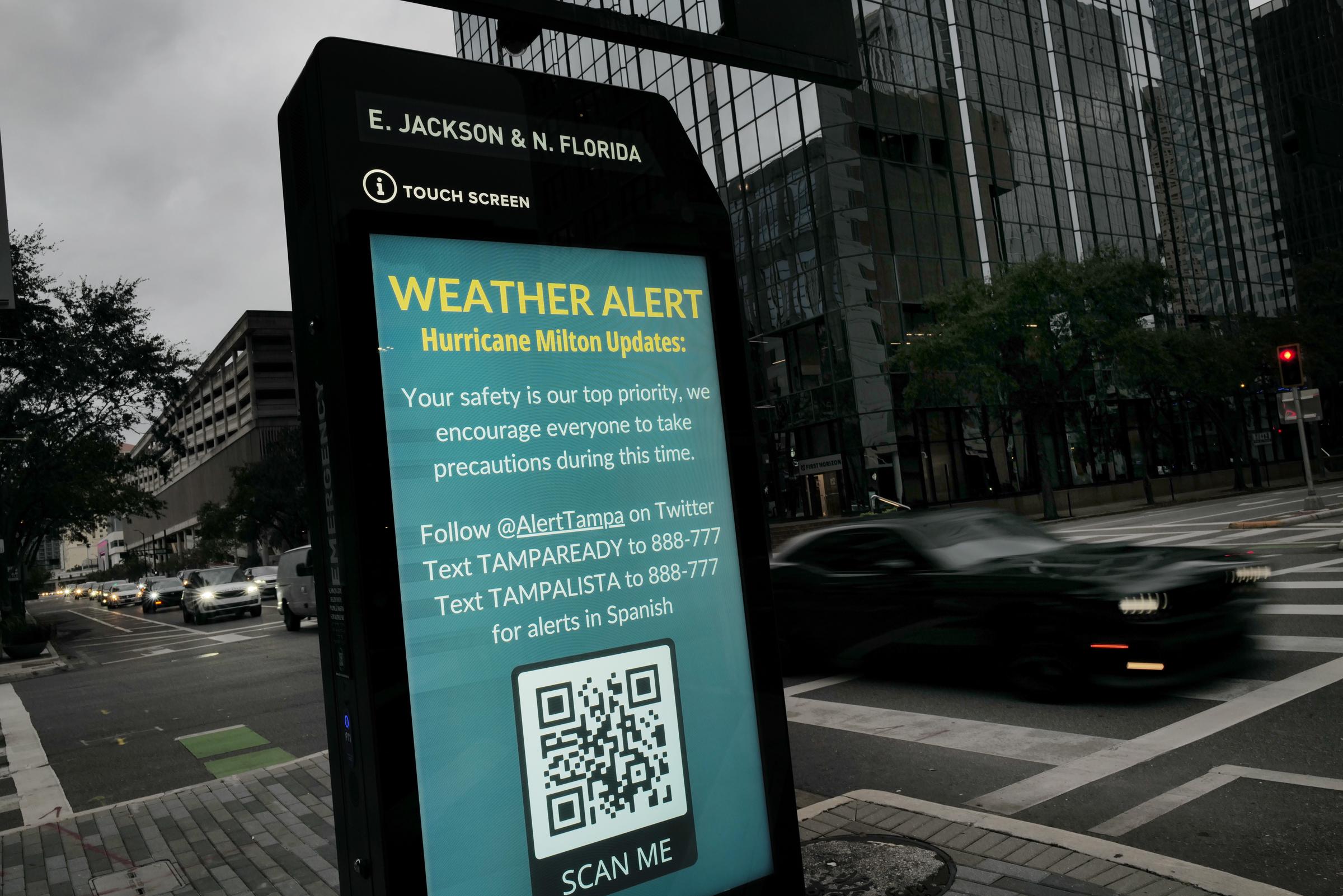
A weather alert is displayed along a sidewalk as Hurricane Milton churns in the Gulf of Mexico in Tampa, Florida, on October 7, 2024 | Source: Getty Images
Check On Your Neighbors
Reach out to your neighbors, especially seniors or those who may require extra assistance, to ensure they have adequate hurricane plans in place. Offer your help in securing their preparations and provide support wherever needed.
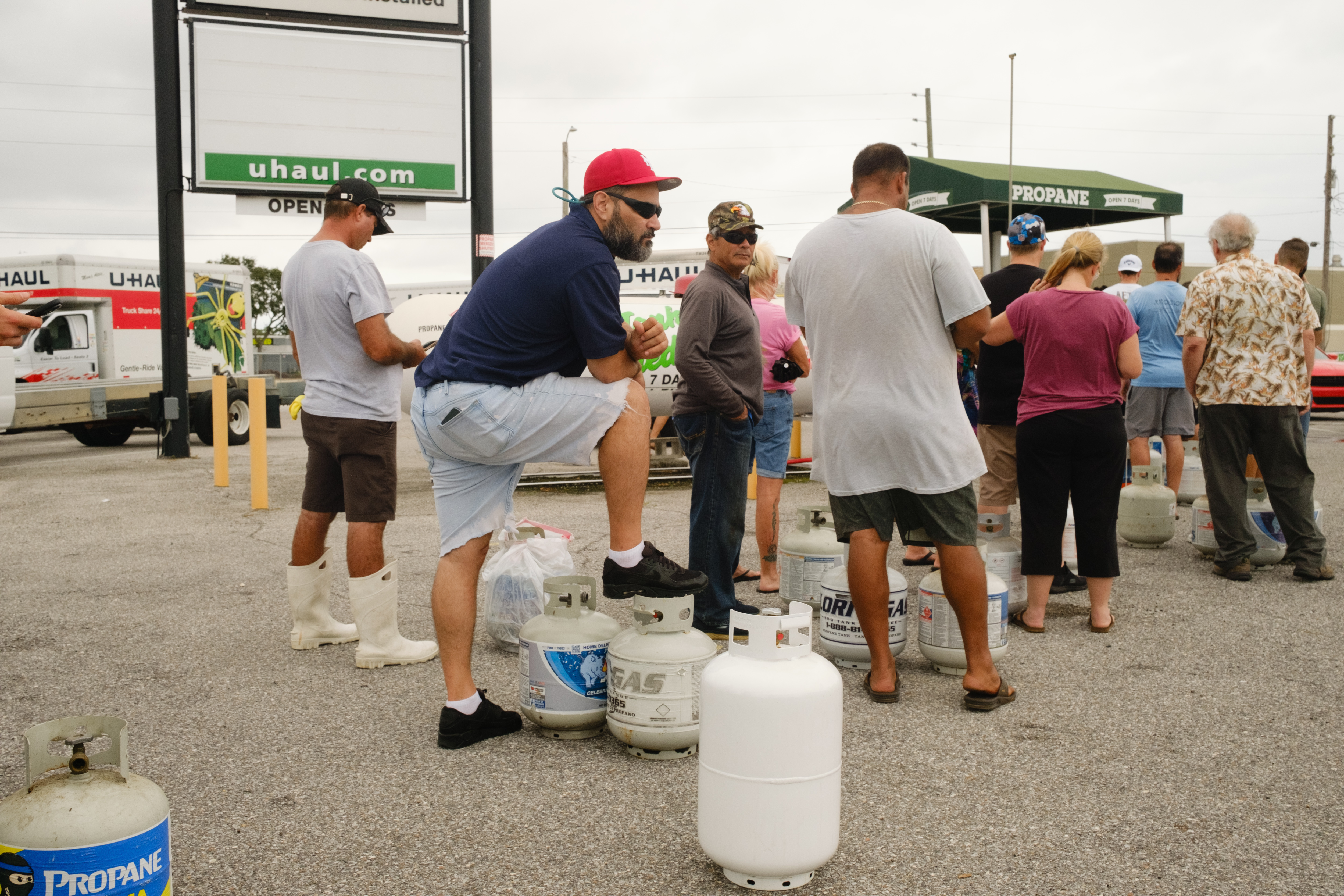
Residents line up for propane at a U-Haul location ahead of Hurricane Milton’s expected landfall in St. Petersburg, Florida, on October 7, 2024 | Source: Getty Images
Stay Out of Flood Water
Avoid entering floodwaters, as even six inches of fast-moving water can knock you off your feet. Prioritize your safety and steer clear of all flooded areas.
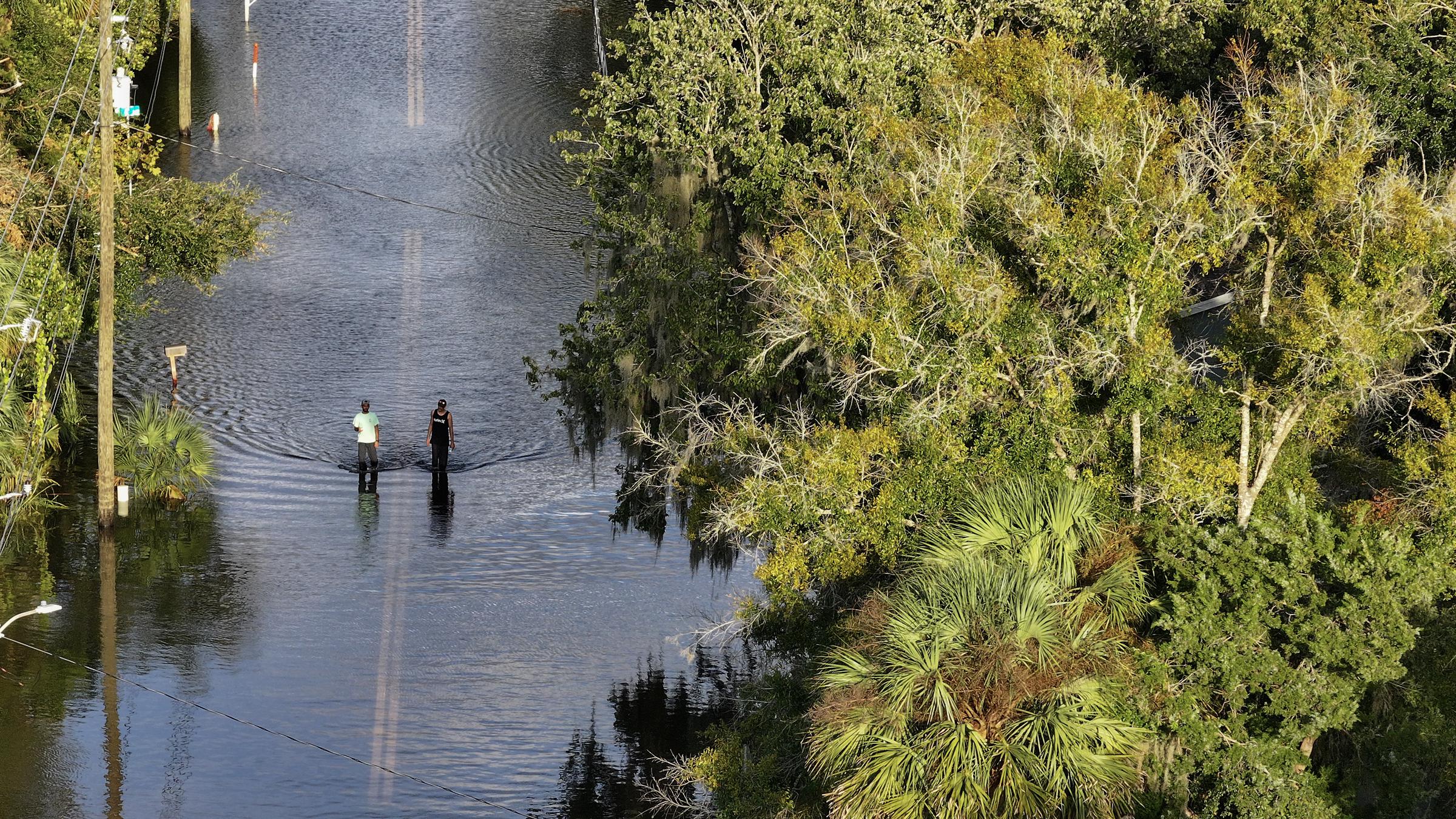
People walk through flood waters along a road after Hurricane Helene hit the area as it passed offshore in Crystal River, Florida, on September 27, 2024 | Source: Getty Images
Turn Around and Do Not Drown
Be aware that just one foot of moving water can easily sweep away a vehicle. Stay vigilant and never drive through flooded areas. Avoid walking, swimming, or driving in floodwaters at all times. If you encounter flooding, turn around and find an alternate route.
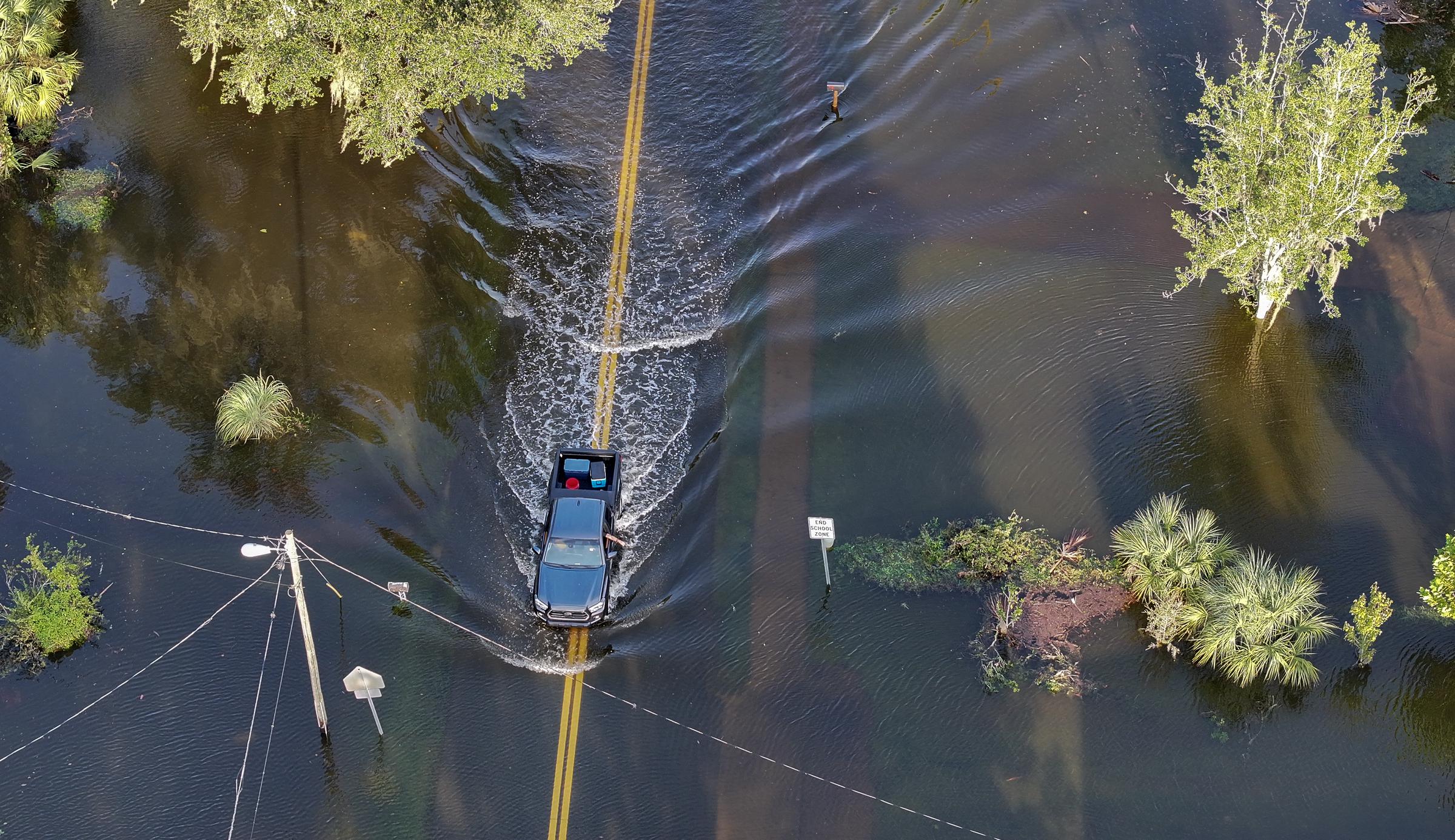
A vehicle drives through flood waters after Hurricane Helene hit the area as it passed offshore in Crystal River, Florida, on September 27, 2024 | Source: Getty Images
Take Care of Your Mental Health
Lastly, prioritize your mental health during and after a hurricane. It’s important to acknowledge any feelings of anxiety or stress and seek support when needed. Reach out to friends, family, or mental health professionals to discuss your concerns and explore coping strategies.
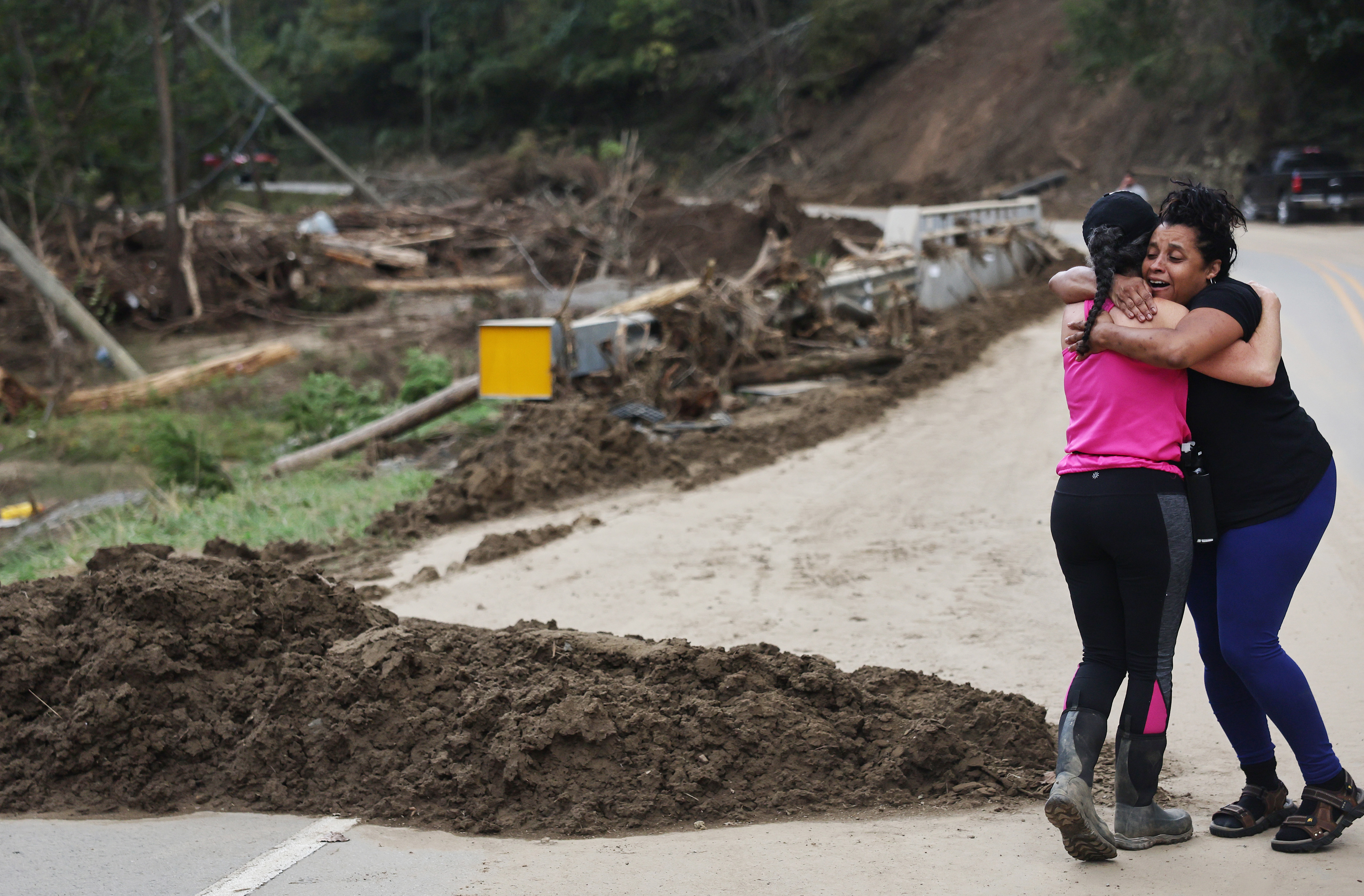
Tammie Mance hugs her boss Liesl Steiner, whose home was destroyed by Hurricane Helene in Black Mountain, North Carolina, on October 3, 2024 | Source: Getty Images
Evacuate: Know Your Zone and Stay Safe
Tampa Mayor Jane Castor stressed the importance of heeding evacuation zones as Hurricane Milton, forecasted to strengthen and pose deadly threats, approaches Florida’s west coast on October 9, 2024. She warned residents, “I can say without any dramatization whatsoever: If you choose to stay in one of those evacuation areas, you’re gonna die.”
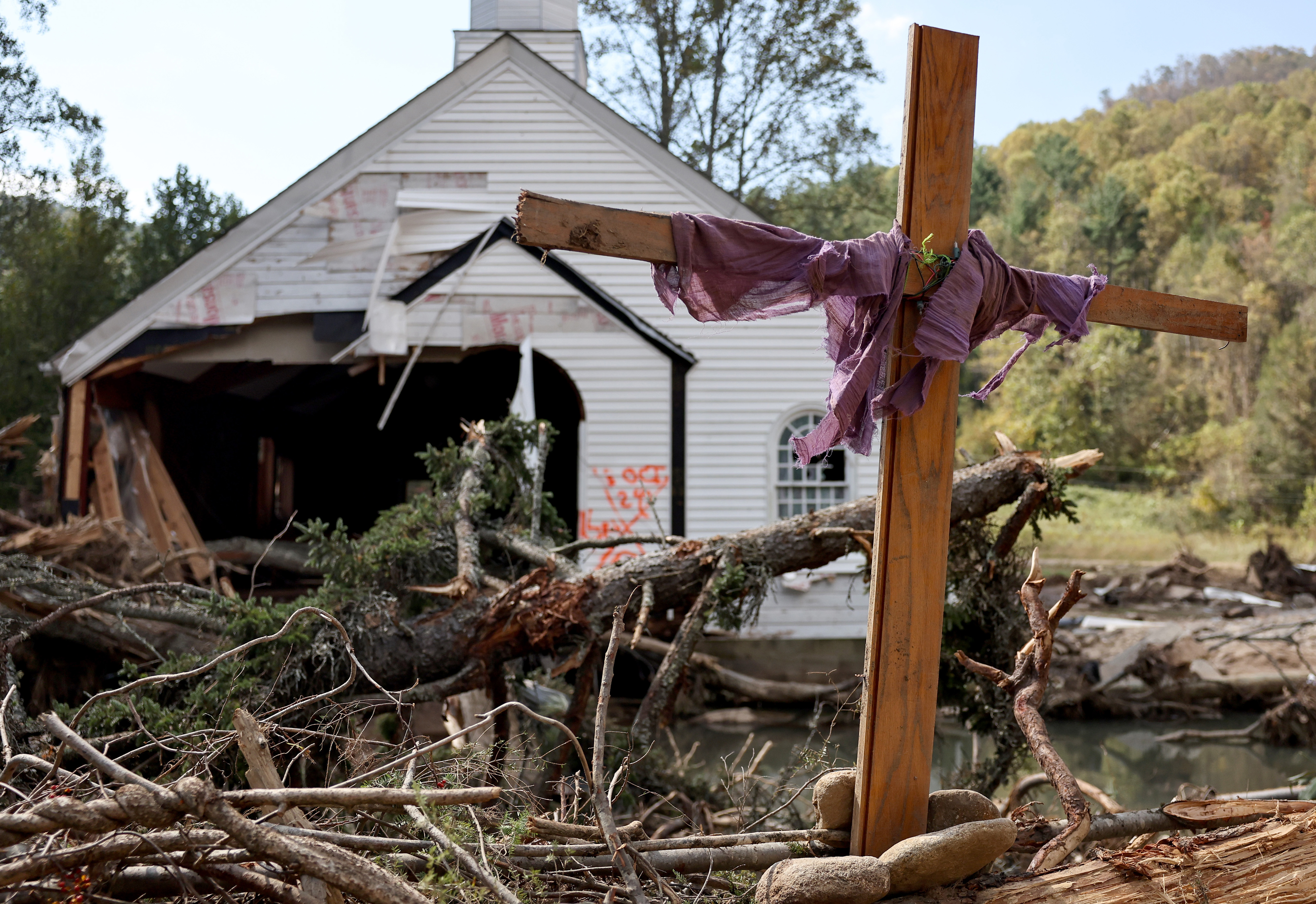
A makeshift cross stands amid fallen trees in front of a destroyed church in the aftermath of Hurricane Helene flooding in Swannanoa, North Carolina, on October 6, 2024 | Source: Getty Images
Tampa, located in Hillsborough County, has issued mandatory evacuation orders for Zones A and B, as well as for residents in mobile homes. The city is urging those in the affected areas to evacuate immediately, warning that Hurricane Milton poses a “literally catastrophic” threat.
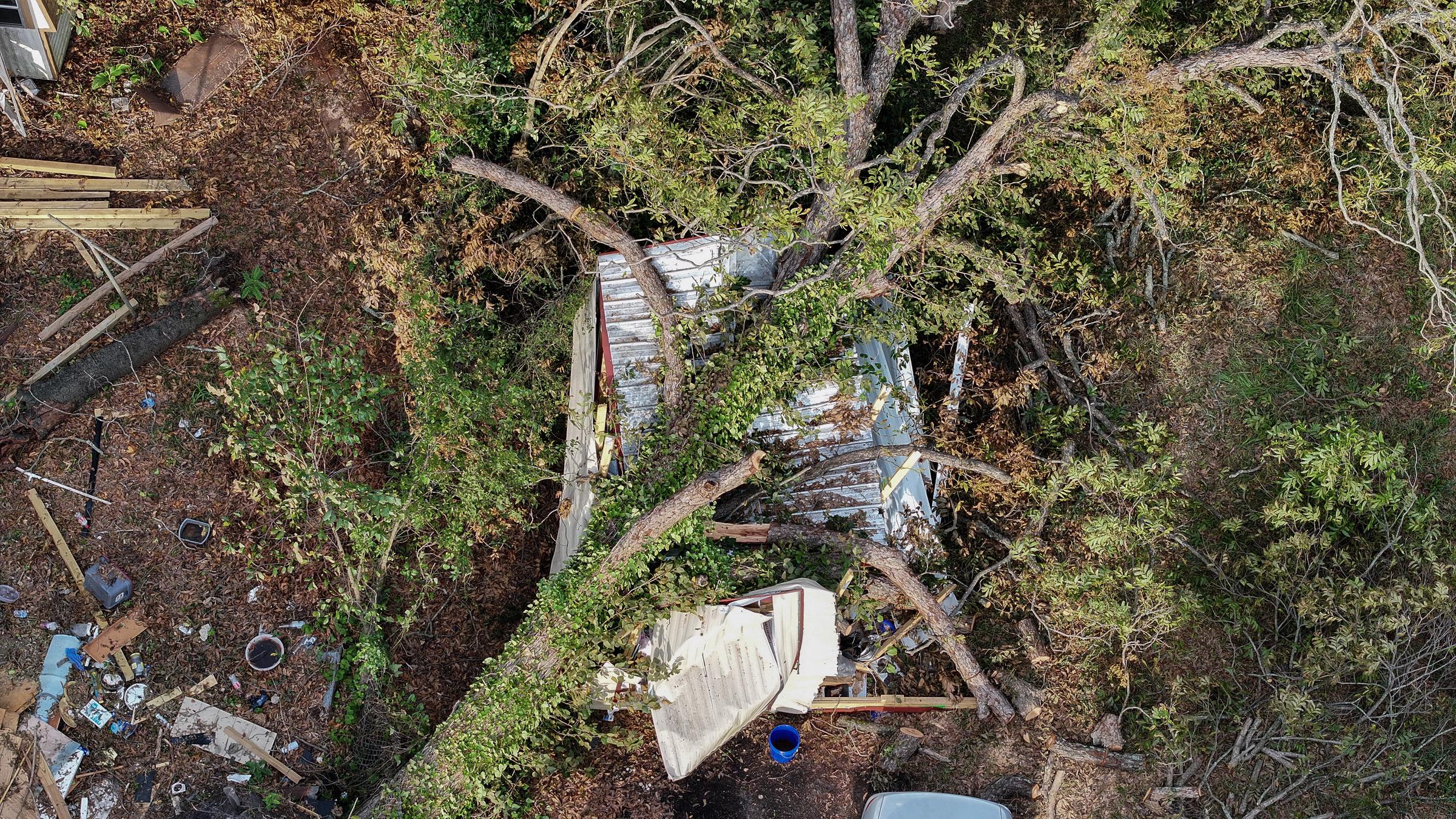
A tree lays on top of a shed as the area recovers from the aftermath of Hurricane Helene in Augusta, Georgia, on October 5, 2024 | Source: Getty Images
The following counties have issued evacuation orders.
Charlotte County:�Mandatory evacuation for residents in Red Zone-A, Orange Zone-B, and those living in mobile and manufactured homes.
Citrus County: Mandatory evacuation beginning October 8, 2024, for all residents living in campers, tents, mobile homes, manufactured homes, or any structures unable to withstand sustained winds of up to 110 MPH.
Collier County: Voluntary precautionary evacuation effective immediately for all residents in Collier County in Zones A and B, including west of Airport Pulling Road and south of US-41 Tamiami Trail E. Mobile home residents and areas with a history of storm flooding are also included. A mandatory evacuation for all of Zones A and B began on October 8, 2024.
DeSoto County: Evacuation orders for Zones A (Red) and B (Orange), including all residents living in mobile and manufactured homes, as well as those in low-lying or flood-prone areas.
Clay County: No mandatory evacuation orders, but residents in low-lying or flood-prone areas, especially along Black Creek or the St. Johns River, are strongly encouraged to consider relocating for safety.
Hardee County: Residents in low-lying areas, mobile homes, recreational vehicles, and unsafe structures are advised to evacuate as soon as possible, as per Hardee County Emergency Management on October 7, 2024.
Glades County: Voluntary evacuation for mobile homes, RV parks, and low-lying areas, which started on October 8, 2024.
Hillsborough County: Mandatory evacuation for Evacuation Zones A and B, including all mobile homes and manufactured housing throughout the county, beginning October 7, 2024.
Hernando County: Mandatory evacuation orders for all areas west of US 19, including evacuation zones A, B, and C, from October 8, 2024. This includes all residents in coastal and low-lying areas, as well as those in manufactured homes countywide.
Levy County:�Mandatory evacuation for all mobile homes, manufactured homes, recreational vehicle parks, coastal communities, and low-lying areas west of US 19. Hurricane risk shelters have opened at Bronson Elementary for special needs and Bronson Middle High School for general population/pet-friendly evacuations.
Lee County: Mandatory evacuation orders for Zones A and B, urging residents to finalize emergency plans and evacuate as soon as possible, aiming to be in a safe location by the evening of October 8, 2024.
Manatee County: Mandatory evacuation for all residents in Levels A, B, and C, including visitors in RVs or mobile homes, effective October 7, 2024.
Marion County: Recommended evacuation for residents living in mobile homes, RVs, modular-type homes, and site-built homes constructed before 1994 due to the hurricane’s projected path, as per Marion County Sheriff’s Office Emergency Management.
Miami-Dade County: Voluntary evacuation center for residents of mobile home parks, opening the E. Darwin Fuchs Pavilion on October 8, 2024, as a pet-friendly evacuation option.
Okeechobee County: Voluntary evacuation for all low-lying areas and mobile homes starting October 8, 2024.
Pasco County: Mandatory evacuations for Zone C as the hurricane approaches. Evacuations are also required for those in Zones A, B, or C, as well as residents in manufactured homes, RVs, low-lying areas, or structures prone to flooding.
Volusia County:�Mandatory evacuation order taking effect on October 9, 2024, for all areas east of the Intracoastal Waterway, including residents in manufactured and mobile homes, low-lying and flood-prone areas, as well as campsites and RV parks.
Sumter County: Residents in mobile homes, low-lying areas, or with special needs are strongly urged to consider evacuation or relocating to a shelter when they open.
Sarasota County: Residents in Sarasota County living in Level A or near Level A, as well as those in manufactured home communities or mobile/boat homes, are advised to implement their evacuation plans immediately, whether that involves staying with friends or leaving the area.
Pinellas County: Mandatory evacuation for all residents in Zones A, B, and C, as well as all mobile homes. Special needs residents and residential healthcare facilities in these zones are also included in the evacuation order.
Putnam County: Recommended evacuation for Zones F and A due to concerns regarding high river levels.
Following directives from local authorities and knowing evacuation zones help families evacuate safely and efficiently. This also enables emergency services to respond more effectively to those in need.

